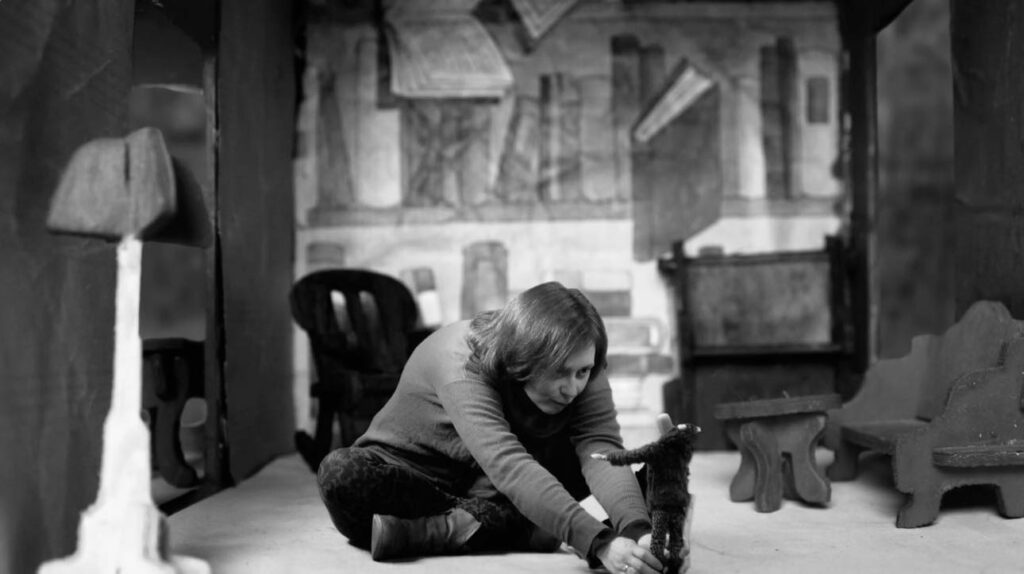
FINDINGS is a silent film that tells of the inner struggles of a woman who wants to emancipate herself, but loses herself in her loneliness while searching for a home. Kristina Schippling is a producer, director, cinematographer and screenwriter all in one. At the beginning of the film, the adult protagonist plays with dolls in her dream world and realises that she has long outgrown her role. Then she meets reality. The people she meets wear the same clothes as the dolls. The main character sees them in the same light and treats them like her dolls, tries to arrange them for herself, to put them down like the dolls, to sit down, which of course fails. In the outside world, the young woman experiences a powerlessness that she did not know in her inner world. FINDINGS is an impressive, profound film created by Kristina Schippling.
–Who is Kristina Schippling?
At the end of the day, I am always discovering and trying out new things and I couldn’t settle on one identification at all. I have the feeling that I have already lived many lives, although I am not old.
-What inspired you to become a filmmaker?
I am basically always inspired; I have hundreds of ideas in my head that just come to me. I like to think about femininity. With the film FINDINGS I wanted to show that emancipation wants to change the current conditions, criticism is made – which is also necessary, but there is often a lack of really new alternative proposals and their implementation. Where can women who have moved on
and no longer fit into the old patterns or want to fit in find a connection? What can the new life look like, how can it be found?

-Do you think the cinema can bring a change in society?
Absolutely. Above all, cinema changes people’s perspectives, their views of something. It changes or directs our perception. It makes important information accessible to masses of people. Unconsciously, we adopt the role models of our heroes, want to be like them or deliberately behave in exactly the opposite way. Cinema has a great influence on social processes.
-What would you change in the world?
If it were possible, I would of course wish for peace throughout the world and for the environment and climate to be brought back into balance. Then I would wish for social systems in which the gap between rich and poor is as small as possible, in which there is equality of opportunity, which lets people live in freedom and as they see fit, which includes different lifestyles and alternatives and tolerance of these. And of course, I would also like to see nature protected, respect for flora and fauna, no more deforestation, no more pollution of the oceans, no more cruelty to animals … I can think of many things.

-Where do you see the film industry going in the next 100 years?
I think the technical development will increase. I think we will go from the screen of a film to a whole interactive world of cyber space, which is basically already there now. There are unimaginable possibilities in virtual reality. It is possible that the individual media will mix. Film and computer games could come together in virtual reality and become one consumable project. But it could also be that we as a society lose the common canon and everyone just lives in their own bubble and drifts away. Society basically breaks apart because we have lost the same denominator.


